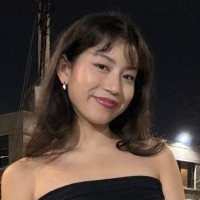Pronouns: She/Her
Organisation: STAND
Country of origin: U.S.
Profile
Caroline Mendoza has a Korean-Mexican background and is a dedicated advocate for human rights and gender studies. She attends Columbia University in the U.S. and is the student director of STAND, a youth-led movement dedicated to ending mass atrocities and genocide. Caroline’s involvement with STAND and her commitment to addressing global issues related to genocide, war crimes, and crimes against humanity set her apart as a peacebuilder and youth activist. Her work spans various regions including Yemen, the U.S., Myanmar, and the case of the Uyghurs in China. She has participated in campaigns and legislative processes, contributing to the passage of the Global Fragility Act in the U.S., which aims to help prevent genocide and other atrocities. As part of STAND, Caroline has also expanded her reach by establishing campus clubs at universities and collaborating with other youth-led organisations.
Story
What sets Caroline apart in the peacebuilding field is her youth-driven approach. She said she believes that young people have unique perspectives and are essential for making campaigns more accessible and engaging. Caroline and STAND connect with established organisations like Search for Common Ground and actively participate in the Youth, Peace & Security Coalition. Caroline said this has helped STAND gain credibility, further solidifying their role as a force in the global peacebuilding landscape. Caroline’s commitment and passion reflect a growing recognition of the importance of youth in creating positive change in the world.
Caroline said her interest in conflict and peacebuilding began when she became engaged with the displacement issue in Mexico, and as she is half Mexican, it touched her. Then she explored more of what was happening around the world and decided to take action. What started as an interest in her background grew to encompass more general issues concerning youth. Caroline said she is aware of her privilege. She is conscious of her status as a university student and tries to use it in a way that will benefit others. Caroline’s organisation focuses on education and awareness, targeting not only students but also a broader audience, including schools and religious groups. The organisation puts together monthly conflict updates, written by students, which help disseminate vital information through a national grassroots network. Caroline’s dedication extends to reframing traditional narratives, such as the American Thanksgiving holiday, which she associates with the Indigenous genocide. She encourages conversations and provides toolkits to help students rethink their understanding of such events during those events and to engage in discussion with their families. Caroline emphasises that challenges will always arise when starting an organisation, and people should be prepared for difficulties. She said that when engaging with fieldwork, it is vital to become acquainted with what is already being done on the ground and coordinate your efforts with already existing local initiatives.
Caroline said that the prominence of youth-led organisations has increased. Some larger organisations are starting to recognize the strategic appeal of aligning with the youth demographic, given the widely acknowledged notion that youth represent the future. The adoption of a youth-led framework serves as a compelling promotional tool for advocacy initiatives and decision-making processes within these organisations. Research supports this, indicating that the inclusion of youth in conflict resolution endeavours significantly enhances the prospects of achieving enduring and sustainable peace. ‘I've slowly seen that people are recognizing that youth really are the future, that youth really do have different perspectives on these things.’
Published in 2025

